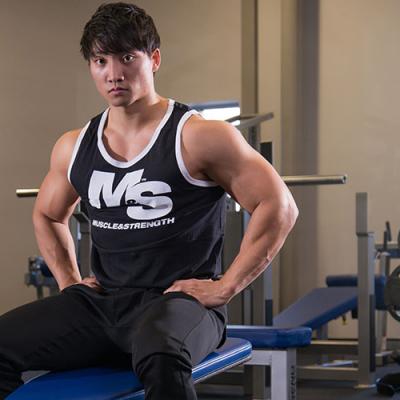
Tactical Strength Conditioning (TSC), a program that improves your aerobic, anaerobic and endurance skills, is a great option. Tactical Strength & Conditioning can be continued as long you make progress. There are numerous exercises to choose from, so you can customize the program to your needs. If you find that your progress stalls, simply switch to a different exercise.
Training for the tactical athlete
High levels of fitness are essential for tactical athletes. The athlete must also have high work ability and be able to adapt to changing work and personal demands. Tactical athletes, unlike normal athletes, have to be able to plan their training to meet the needs of their job. There are basic templates that can be used to assist tactical athletes in managing their training and recovering quickly.
Tactical Athlete Program (or tactical athlete program) is one such program. This program combines high intensity interval training with olympic weightlifting and metabolic conditioning to improve performance. This program is specifically designed for military personnel, police officers, and first responders. Coach Rodriguez, a qualified military and emergency staff member with over 15 year experience supporting athletes as well as the special forces community and amateur athletes, developed it.

Training with a tactical strength and conditioning coach
If you're in the military, you should consider training with a tactical strength and conditioning coach. Although the future of war is still uncertain, the US government has begun to expand its tactical strength-conditioning programs throughout the military. In fact, a $575 million contract awarded to SOCOM's POTFF division for a five-year program is likely to be extended for an additional eight years. As a result, there will be more funding for tactical strength and conditioning, which will increase its effectiveness.
Tactical strength and conditioning is an interdisciplinary approach to fitness and performance. It requires the use of evidence-based training principles to address the specific needs of front-line personnel. This program can be accessed online and uses proven methods to train tactical personnel.
ISSA Tactical Conditioning Specialists Training
ISSA Tactical Conditioning specialists are a great way for you to get more physically fit and increase your overall performance. These trainers are specialists in tactical training and know how strength training can improve mobility, stamina and speed. They are also NCCPT certified, which means that they apply scientific knowledge to training.
The course materials are scientifically based and current. The 700-page manual contains a great deal of practical advice from working trainers. This course is not intended for beginners. It provides a thorough grounding in tactical training and the foundation to start a career. ISSA's Tactical Conditioning Specialist certificate also allows for ongoing support by the organization.

Tactical professionals must be trained at all stages of their careers. They could be veterans moving from one job to the next, or new recruits. All of these individuals need training that meets the demands of their particular occupation and addresses their individual needs. Training should be tailored to specific occupational needs because of the differences in movement patterns between military occupations and civilian ones.
FAQ
How can exercise and nutrition help you live a healthier life?
Exercise is a great way to keep fit, lose weight, build muscle mass, and reduce stress. Nutrition is critical for energy and mood. Eat less meat, limit alcohol consumption, avoid smoking, exercise regularly, and reduce your risk of dying.
What are resistance training exercises?
Resistance training involves using weights or other objects to perform specific movements. Lifting weights helps strengthen your arms, shoulders, chest and back, as well as your legs, hips, and core. Resistance training builds muscle mass, increases bone density, and promotes greater overall strength.
How does caffeine impact my sleep?
Caffeine effects how fast it takes to fall asleep and how much sleep you get. Caffeine makes falling asleep easy by causing drowsiness. But caffeine keeps you awake longer, making it harder to fall asleep again. Try drinking energy drinks and coffee before bed.
How many hours should I sleep each night?
The amount of sleep that is recommended for each individual depends on their age, gender and needs. Most adults need between 7 and 9 hours of sleep per night. Children and teenagers need 10 to 12 hours of sleep per night. As they age, however, this number falls.
How do I get started with fitness?
Start small! Take 10 minutes each day to walk around your block. This will allow you to learn the basic movements and give your body time to adjust to the new routine. Once you are proficient in this type of exercise, add more steps and routines to your day.
Statistics
- Physical activity confers the following maternal and fetal health benefits: a decreased risk of pre-eclampsia, gestational hypertension, gestational diabetes (for example, 30% reduction in risk) (who.int)
- Adolescent girls were less active than adolescent boys, with 85% vs. 78% not meeting WHO recommendations of at least 60 minutes of moderate to vigorous intensity physical activity per day. (who.int)
- Globally, 81% of adolescents aged 11-17 years were insufficiently physically active in 2016. (who.int)
- Globally, 28% of adults aged 18 and over were not active enough in 2016 (men 23% and women 32%). (who.int)
External Links
How To
How to Lose Belly Fats More Fast
When we are trying to lose weight, belly fat is often seen as a problem. When you stop and think about it, Belly Fat can actually be a blessing. Your organs will be protected by the amount of belly fat. Let's now see how to quickly lose belly fat.
The main factors that contribute to our body fat accumulation are stress and inactivity. Because of its stimulation of the production hormone cortisol, stress can make us feel hungry continuously. Cortisol levels are increased by insulin. The excess calories are stored as fat by insulin. The release of adrenaline from our bodies causes increased appetite. These extra calories are broken down through exercise.
There are many different ways to reduce bellyfat. You can try any one of them depending upon your budget. These are some great tips to help you lose belly fat fast.
-
You can eat less. You should eat smaller meals throughout the day than you would if you ate three big meals. You will eat less calories in general.
-
Get plenty of water. Water flushes out toxins, and keeps your body hydrated. Drinking water before meals will help you feel fuller for longer, so you don't overeat.
-
Avoid eating unhealthy snacks. If you're looking for quick fixes, snack foods like chips, cookies, candies, etc. might seem tempting. But avoid these fattening treats as they contain lots of empty calories and too much sugar. Instead, choose healthy alternatives like fruits, veggies, nuts, seeds, and whole grains.
-
Strength training should be performed at least 3 times per week. Strength training builds muscle mass that burns more calories, even when it is done while you rest. Strength training strengthens bones, muscles and ligaments. It can also improve the heart, lungs, joints, and other body systems.
-
Move regularly and stretch. Stretching increases flexibility and mobility. It also reduces back pain. Walking can help you burn calories.
-
Reduce alcohol intake. Alcohol adds empty calories to your diet and has no nutritional value whatsoever.
-
Lose weight gradually. Your current weight is the first step to losing weight. Add 5%-10% of your total bodyweight to calculate your ideal size. Once you have reached your target weight, begin decreasing your daily calories intake by 500-1 000 calories until you reach your goal.
-
Avoid processed foods. These foods are high in salt, sugar, preservatives, and other harmful ingredients. Although they are convenient, processed foods don't have enough nutrients to sustain your health.
-
Don't skip breakfast! A good breakfast can improve concentration, memory, as well as energy level. You should have protein (such as eggs) and fiber (such as oats) for breakfast.
-
Have regular bowel movements. Constipation or irregularity can lead to gas and bloating. This can be prevented by drinking plenty of water and increasing fiber intake.